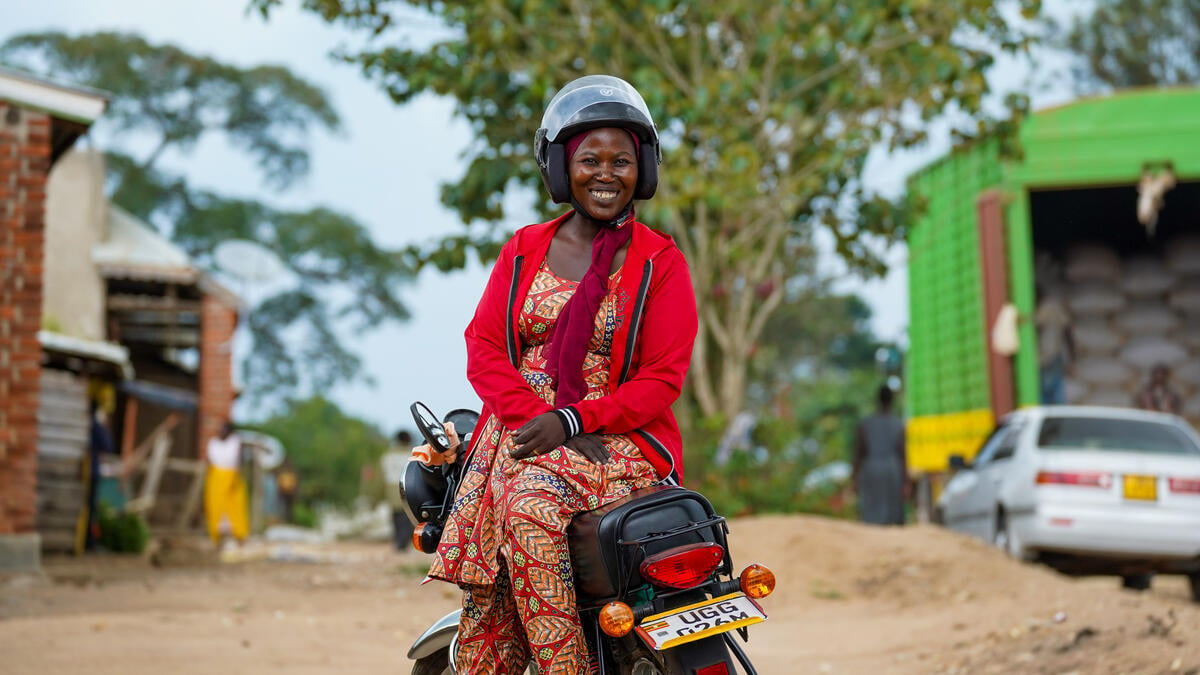Tanzania: New repatriation to DRC launched
Tanzania: New repatriation to DRC launched
Some 155,000 Congolese refugees in camps in Tanzania will now have the opportunity to go home after UNHCR officially launched this week a new repatriation operation in Africa. Official ceremonies were held in Kigoma, Tanzania, and across Lake Tanganyika in Baraka, Democratic Republic of the Congo (DRC) on Wednesday and Thursday respectively.
The official start to the repatriation comes after four trial convoys since Oct. 12 took more than 1,500 refugees home from camps in north-western Tanzania. On Wednesday (9 Nov.), 484 refugees were transported in trucks from Nyarugusu camp in Kasulu District to Kigoma, some three hours away.
Following an early evening ribbon-cutting ceremony at the pier on Wednesday, refugees carrying the DRC flag boarded the ferry for the overnight journey across Lake Tanganyika, the longest lake in the world. The refugees - who fled fighting in their home area of the Kivus over the last decade - travel on the MV Mwongozo, chartered by UNHCR to ferry them across the lake to the DRC.
The name of the ship means "leading the way" in Kiswahili, and the refugees have indeed led the way on this repatriation. Last year, refugees already started returning home on their own in unsafe boats - some 15,000 went home on their own - so we felt it prudent to help them by organizing proper transportation. The organized repatriation was made possible by the signing of a Tripartite Agreement in September between UNHCR and the governments of DRC and Tanzania. While the small boats the refugees used to charter took up to 15 hours to make the crossing, the MV Mwongozo does it in just six hours.
On arrival in Baraka, in South Kivu, DRC, at a port reconstructed by UNHCR, the returnees were met by our teams. They were given a hot meal and registered at the Baraka transit centre, where they stayed overnight before being helped back to their villages of origin. During their stay at the transit centre, the refugees underwent training in mine and HIV/AIDS awareness. Upon arrival in their villages, they will receive a repatriation package including mattresses and kitchen sets, as well as farming implements and building tools.
The repatriations will continue with a maximum of 500 refugees sailing every Wednesday. We would like to increase the number of movements to two a week. However, we have had some logistical problems in addition to a shortage of funds for the repatriation.
Although Lake Tanganyika is the second deepest lake in the world (after Lake Baikal in Russia), the water level right now is extraordinarily low. This means the ship cannot dock at the Kigoma pier, and we are having to use a smaller boat to ferry refugees from the pier to the MV Mwongozo. We are trying to arrange for floating pontoons to make the boarding process easier.









